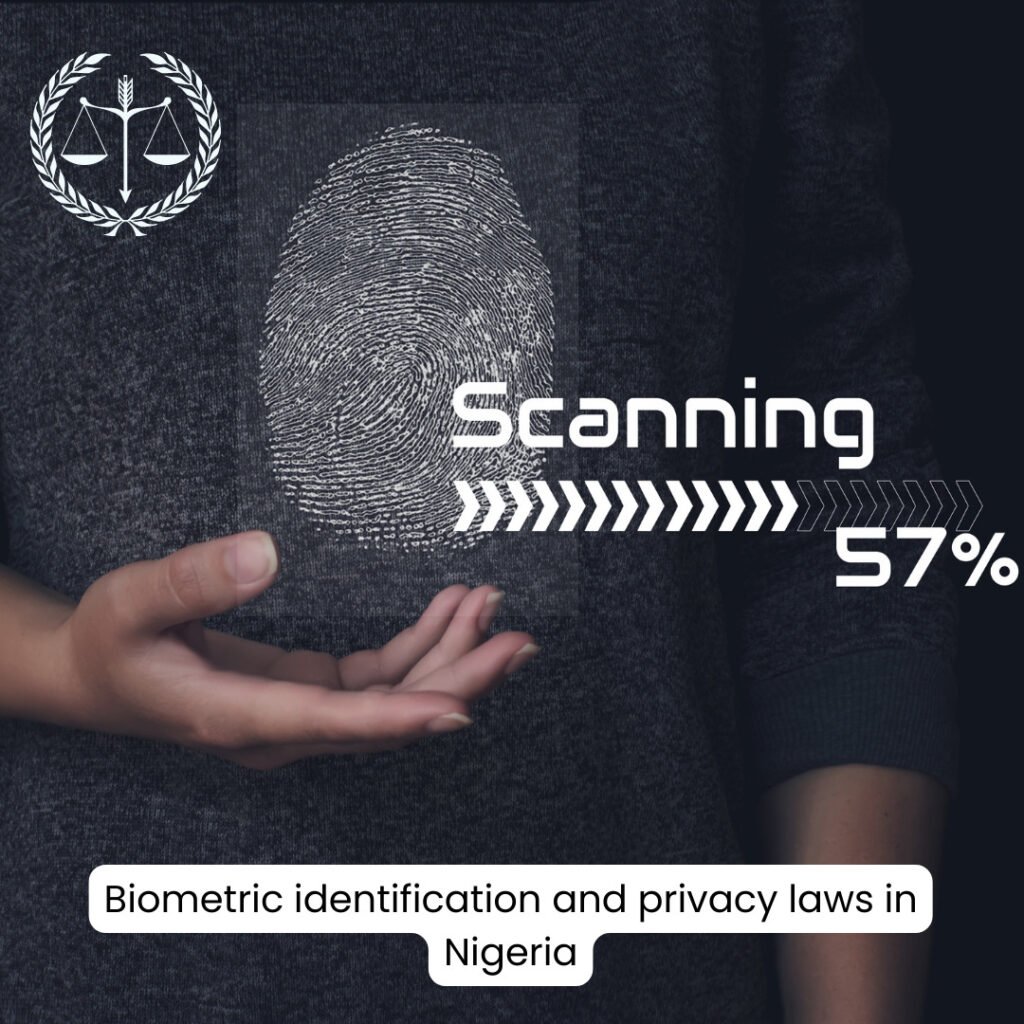Biometric Identification and Privacy Laws in Nigeria
Biometric identification, the use of unique biological traits for authentication and verification, has revolutionized the way individuals access services, conduct transactions, and interact with digital systems. In Nigeria, a nation embracing digital transformation, biometric identification has been widely adopted for various purposes, including voter registration, financial transactions, and identity verification. However, the use of biometric data raises significant privacy concerns, necessitating a robust legal framework that safeguards individuals’ personal information while harnessing the benefits of biometric technology. This article explores the realm of biometric identification and privacy laws in Nigeria, delving into their significance, legal framework, challenges, and implications for individuals, businesses, and the broader digital landscape.
The Significance of Biometric Identification
Biometric identification offers several advantages:
- Accuracy and Security: Biometric traits such as fingerprints, facial features, and iris patterns are unique to each individual, providing accurate and secure identification.
- Convenience: Biometric authentication streamlines access to services, reducing the need for passwords and physical identification documents.
- Fraud Prevention: Biometric technology helps prevent identity theft and fraud, safeguarding individuals’ financial and personal information.
Legal Framework: The Nigerian Data Protection Regulation (NDPR)
The Nigerian Data Protection Regulation (NDPR), established in 2019, serves as the primary legal framework governing the collection, processing, and protection of personal data, including biometric information. The NDPR provides guidelines for organizations handling biometric data, emphasizing the principles of transparency, consent, and data security.
Challenges in Biometric Identification and Privacy
The use of biometric identification presents challenges:
- Data Security: Safeguarding biometric data from unauthorized access, breaches, and potential misuse is a significant challenge.
- Informed Consent: Obtaining informed consent for biometric data collection and usage, especially from vulnerable populations, requires careful attention.
- Function Creep: Ensuring that biometric data is used only for its intended purpose and not for unrelated activities.
Biometric Identification and Privacy Laws: Striking the Balance
Addressing privacy concerns while harnessing the benefits of biometric identification requires a balanced approach:
- Transparency: Organizations collecting biometric data must clearly communicate their data practices, purposes, and security measures to individuals.
- Informed Consent: Obtaining explicit and informed consent before collecting biometric data ensures that individuals understand the implications of data usage.
- Data Minimization: Collecting only necessary biometric information and retaining it for a limited time minimizes privacy risks.

Implications and Opportunities
Biometric identification and privacy laws have implications for individuals, businesses, and the broader digital landscape:
- Individual Empowerment: Privacy laws empower individuals to control their biometric data, ensuring they have a say in how it is used.
- Innovation: A clear legal framework fosters responsible biometric innovation while protecting individuals’ privacy rights.
- Global Data Protection Standards: Compliance with privacy laws enhances Nigeria’s position in the global digital ecosystem.
Charting the Path Forward
The future of biometric identification and privacy laws in Nigeria involves:
- Enhancing Awareness: Educating individuals and organizations about biometric data collection, usage, and their rights.
- Technological Safeguards: Developing robust encryption, authentication, and data protection measures to mitigate privacy risks.
- Regular Review: Continuously evaluating and updating privacy laws to address evolving biometric technologies and risks.
Conclusion
Biometric identification holds immense potential to transform Nigeria’s digital landscape, enhancing security and convenience. By implementing and enforcing privacy laws that respect individuals’ rights, promote transparency, and ensure responsible data usage, Nigeria can strike a balance between harnessing the benefits of biometric technology and protecting personal privacy. As Nigeria continues to embrace digital advancements, a proactive and adaptable approach to biometric identification and privacy laws will contribute to a digital ecosystem that values innovation, respects privacy, and positions Nigeria as a leader in responsible biometric usage on the global stage.
